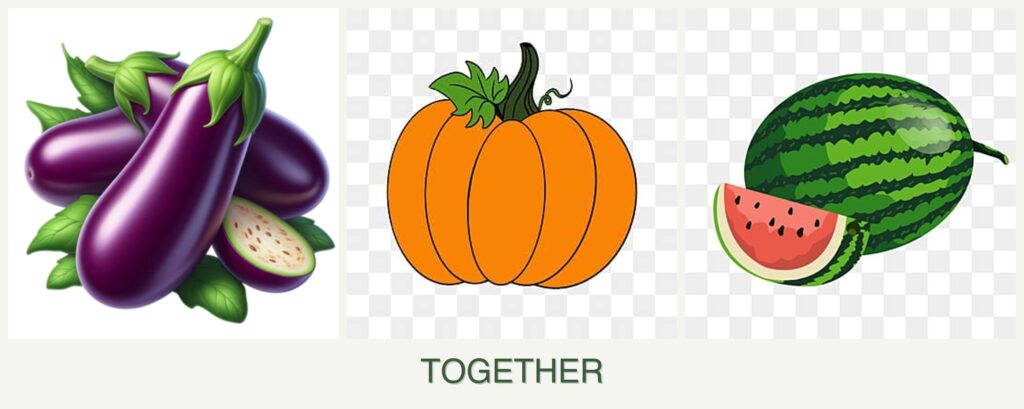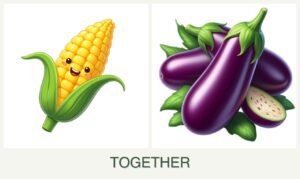
Can you plant eggplant, pumpkin and melons together?
Can You Plant Eggplant, Pumpkin, and Melons Together?
Companion planting is a popular technique among gardeners aiming to maximize space, improve yields, and reduce pests. But can you plant eggplant, pumpkin, and melons together? This article explores the compatibility of these plants, offering insights into their growing needs, benefits, and potential challenges. By the end, you’ll know whether these vegetables can thrive side by side in your garden.
Compatibility Analysis
The short answer is yes, you can plant eggplant, pumpkin, and melons together, but with some considerations. These plants can coexist under the right conditions, primarily due to their similar growth requirements and complementary benefits.
Growth Requirements
Eggplants, pumpkins, and melons all thrive in warm conditions and require full sun to produce abundant yields. However, they differ in their spacing needs and growth habits. Pumpkins and melons are sprawling plants that need ample room to spread, while eggplants grow upright, making them less space-demanding horizontally.
Pest Control and Nutrient Needs
Companion planting can help with pest control. For instance, eggplants can attract beneficial insects that prey on pests affecting pumpkins and melons. Nutrient-wise, these plants all benefit from rich, well-draining soil, but they may compete for nutrients if not properly spaced.
Growing Requirements Comparison Table
| Plant | Sunlight Needs | Water Requirements | Soil pH | Soil Type | Hardiness Zones | Spacing Requirements | Growth Habit |
|---|---|---|---|---|---|---|---|
| Eggplant | Full sun | Moderate | 5.5-7.0 | Well-drained | 4-10 | 18-24 inches | Upright, bushy |
| Pumpkin | Full sun | High | 6.0-6.8 | Rich, sandy | 3-9 | 36-60 inches | Sprawling vine |
| Melon | Full sun | Moderate | 6.0-6.8 | Sandy loam | 4-11 | 36-60 inches | Sprawling vine |
Benefits of Planting Together
Planting eggplants, pumpkins, and melons together can offer several advantages:
- Pest Repellent Properties: Eggplants can attract beneficial insects that help control pests on pumpkins and melons.
- Improved Growth: The diverse root systems can enhance soil structure, improving nutrient uptake.
- Space Efficiency: Vertical growth of eggplants allows for efficient use of space alongside sprawling melons and pumpkins.
- Pollinator Attraction: Flowers from all three plants attract pollinators, boosting fruit production.
Potential Challenges
While there are benefits, there are also challenges to consider:
- Resource Competition: These plants may compete for water and nutrients, especially if planted too closely.
- Watering Needs: Pumpkins require more water than eggplants and melons, necessitating careful irrigation management.
- Disease Susceptibility: Close planting can facilitate the spread of diseases like powdery mildew.
- Harvesting Considerations: The sprawling nature of pumpkins and melons can make harvesting tricky if not well-managed.
Solutions
To overcome these challenges, ensure proper spacing and consider using mulch to retain soil moisture and prevent weed growth. Regular monitoring and targeted watering can also help manage differing water needs.
Planting Tips & Best Practices
- Optimal Spacing: Plant eggplants 18-24 inches apart, and allow at least 3-5 feet between pumpkins and melons.
- Timing: Plant after the last frost when soil temperatures reach at least 60°F (15°C).
- Container vs. Garden Bed: Use raised beds or containers for eggplants to optimize space and control soil quality.
- Soil Preparation: Enrich soil with compost and ensure good drainage.
- Additional Companions: Consider planting marigolds or nasturtiums nearby to deter pests.
FAQ Section
-
Can you plant eggplant and pumpkin in the same pot?
- No, due to their different spacing and growth requirements.
-
How far apart should pumpkins and melons be planted?
- At least 3-5 feet apart to allow for sprawling vines.
-
Do eggplants and melons need the same amount of water?
- Not exactly; melons need more consistent moisture than eggplants.
-
What should not be planted with these plants?
- Avoid planting with potatoes or fennel, which can inhibit growth.
-
Will eggplant affect the taste of pumpkins or melons?
- No, companion planting does not affect the taste of the produce.
-
When is the best time to plant these vegetables together?
- After the last frost, when the soil is warm enough for germination.
Planting eggplant, pumpkin, and melons together can be a rewarding endeavor with careful planning and management. By understanding their needs and addressing potential challenges, you can create a thriving vegetable garden that maximizes space and productivity.



Leave a Reply